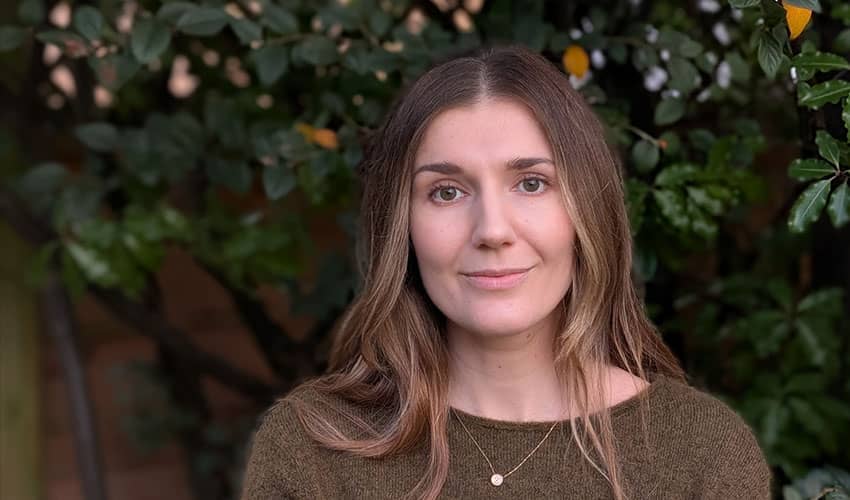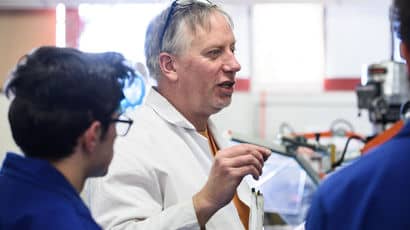Test for spiking to reduce psychological distress – new study

More should be done to help victims of suspected spiking attacks process the psychological trauma of the event by testing patients who arrive in hospital intoxicated by drink or drunks, say the authors of a new study.
Over recent years there has been a marked increase in personal accounts of spiking incidents across the UK. Analysis from YouGov last year in 2022 found that one in ten women (10%) and one in twenty men (5%) said they have had their drink spiked. This has coincided with an increase in spiking attacks by injection – a new phenomenon which has gained widespread media attention.
Despite campaigning efforts to increase testing for suspected victims of spiking, a new evidence review authored by emergency medicine doctors and clinical psychologists highlights that this is rarely the reality for patients arriving at hospital. If they are intoxicated, the focus is how to get them sober, not to understand how they become intoxicated in the first place.
The review authors from UWE Bristol and the University of Bath recognise that treating patients symptomatically is the medical priority. Yet they argue that it means many patients leave hospital once sober, without having been tested and without certainty about what might, or might not, have happened.
This lack of clarity over how or whether they have been spiked adds to the psychological distress of the traumatic event, they say. Writing in the Emergency Medicine Journal, they suggest that the absence of diagnostic certainty can result in victims blaming themselves with feelings of guilt, shame, and fear, exacerbating the psychological toll of such incidents.
Senior author and emergency doctor, Dr Tom Roberts based at UWE Bristol explained: “Currently we see that patients are being encouraged to attend healthcare if they believe they could have been spiked, but there is a real mismatch between their expectations and the reality on the ground where testing is typically very hard to come by.
“Doctors’ priority must be on dealing with patients’ symptoms and ensuring they are medically well. But there is a finite window for testing, and too often patients are discharged from hospital after a period of observation, but with many questions over what may or may not have happened. We believe we could do more to understand if and how testing could have a positive impact of patients.”
Co-author and clinical psychologist at the University of Bath, Dr Jo Daniels added: “Through our review we observe that without appropriate testing, victims of spiking are likely to blame themselves for whatever unwanted or unpleasant consequences can arise from spiking – and they may do so in error without a coherent understanding of the circumstances.
“Knowing more about what happened in instances where victims have been spiked can help them to process the event and reduce feelings of self-blame which may persist and add to the psychological toll of a distressing event. Equally important though is to know when you have not been spiked, which increased testing could reveal.”
The three broad categories of drugs commonly used for spiking are alcohol, ‘date rape drugs’ (e.g., benzodiazepines) and ‘party drugs’ (e.g., MDMA). Drug and alcohol testing can be carried out by both blood and urine tests. For the best results, blood tests should be sent to toxicology within 24 hours.
Their paper ‘Drink and injection spiking: how to approach an increase in presentations’ a practice review is published in the Emergency Medicine Journal https://emj.bmj.com/content/early/2023/02/13/emermed-2022-212612.
Related news

16 February 2026
UWE Bristol researchers awarded grant to explore impact of asset recovery on offenders
UWE Bristol academics have been awarded funding to explore of the impact of asset recovery on deterring offender behaviour and disrupting crime networks.

10 February 2026
Work by UWE Bristol lecturer features in Government’s National Cancer Plan
Work by a UWE Bristol academic has been included in the Government’s National Cancer Plan.

23 January 2026
On-demand minibus services beneficial in rural areas but face financial challenges, trials suggest
Trials of ‘demand responsive transport’ minibus services boosted connectivity for people in rural and suburban areas, according to a new report produced by UWE Bristol researchers.

18 December 2025
UWE Bristol professor appointed National Institute for Health and Care Excellence CEO
Jonathan Benger CBE, Professor of Emergency Care at UWE Bristol, has been appointed as the new chief executive officer of the National Institute for Health and Care Excellence (NICE).

17 December 2025
Findings revealed from first UK study into experiences of mothers who are survivors of rape pregnancy
UWE Bristol academics have revealed the findings of the first UK-based study of the experiences of mothers who are survivors of rape pregnancy.

11 December 2025
Social media influencer work is far more demanding than it looks, research finds
A study exploring the mental health impacts of social media influencer work has revealed that life online is far more demanding than it appears.

25 November 2025
UWE Bristol experts join film Q&A exploring music and melodrama
Academics will take part in the Cary Comes Home Festival, with a post-screening Q&A exploring music, melodrama and emotional storytelling in classic cinema.

17 November 2025
Urgent reform needed to support ambulance-delivered end of life care, study finds
More than three quarters (78 per cent) of paramedics sometimes fear doing the wrong thing when caring for people in the last year of life, new research has found.

13 November 2025
Bristol’s screen industry experiences “boom-and-bust cycle” after post-pandemic recovery, new research from UWE Bristol finds
New research from UWE Bristol provides detailed insight into Bristol's screen sector.

13 November 2025
New AI research to revolutionise animal welfare
A UWE Bristol research project will combine behavioural science and AI to create technology that understands not only what animals do, but how they feel.

10 November 2025
Lessons from Low Traffic Neighbourhoods will drive better public engagement, study finds
Lessons from Low Traffic Neighbourhoods have informed a new toolkit to improve engagement with the public on challenging local street issues.

06 November 2025
First-of-its-kind study aims to help more people spend their final days at home
A new study will explore how architectural design could support end-of-life care in domestic settings.
You may also be interested in

Find an expert
Media contacts are invited to check out the vast range of subjects where UWE Bristol can offer up expert commentary.

Media enquiries
Enquiries related to news releases and press and contacts for the media team.

Research
Discover how research at UWE Bristol is making a real impact.






